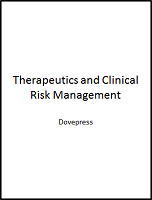
Arthroplasty
Reduced transfusion rate without increase in VTE rate with erythropoietin in orthopaedic surgery
Ther Clin Risk Manag. 2018 Jul 10;14:1191-1204. doi: 10.2147/TCRM.S15913425 randomized controlled trials were included in this meta-analysis which assessed results related to transfusion rate, hemoglobin levels, and venous thromboembolism rate associated with erythropoietin (EPO) administration in orthopaedic surgery. Comparisons included EPO to inactive control treatment, EPO to active control treatment with preoperative autologous blood donation, and the combination of EPO with PABD compared to PABD. Transfusion rate and Hb levels at 24-48 hours, 3-5 days, and at discharge significantly favoured EPO groups compared to both inactive control and PABD. In combination with PABD, EPO was also associated with significantly lower transfusion rate and increased Hb level at discharge compared to PABD alone. All analyses of the incidence of venous thromboembolism demonstrated no significant increase with the use of EPO.
Unlock the full article
Get unlimited access to OrthoEvidence with a free trial
Start TrialCritical appraisals of the latest, high-impact randomized controlled trials and systematic reviews in orthopaedics
Access to OrthoEvidence podcast content, including collaborations with the Journal of Bone and Joint Surgery, interviews with internationally recognized surgeons, and roundtable discussions on orthopaedic news and topics
Subscription to The Pulse, a twice-weekly evidence-based newsletter designed to help you make better clinical decisions
Exclusive access to original content articles, including in-house systematic reviews, and articles on health research methods and hot orthopaedic topics
Or continue reading this full article
Register Now

Subscribe to "The Pulse"
Evidence-Based Orthopaedics direct to your inbox.




































